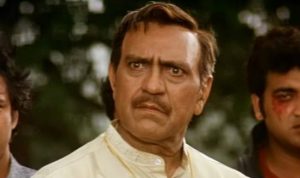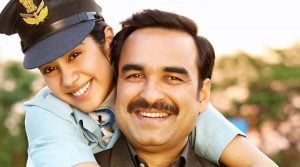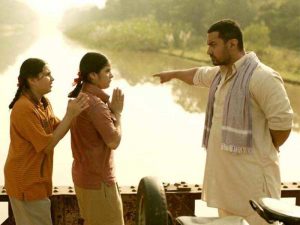Bollywood has had a strong influence on shaping our opinions, perception and outlook. In the same vein, it has also promoted stereotypes, especially gender-based. The film industry has often been accused of glorifying toxic masculinity (and rightly so) through films, in which the hero always makes things happen and the heroine is a dutiful supporter. The man always swings into action while the woman is left shackled in the trappings of the ‘sanskari bahu, beti and patni’ role.
But the winds of societal change are gradually changing the ‘mard’ in our movies too and he need not necessarily be the leading man. He can also be the father, brother or the hero’s friend. Some Bollywood films have also depicted the transformative change – of a dogmatic father into a more understanding one; of a protective brother into an accommodating one and of an overly possessive lover into one who believes that love is the antithesis of selfishness.
On this International Men’s Day, let’s take a look at some of these transformations.
Amrish Puri in ‘Dilwale Dulhaniya Le Jayenge’
Who doesn’t remember the iconic dialogue ‘Ja Simran Ja, Jee Le Apni Zindgai’, mouthed by the fearful father character in the movie, which has become symbolic of girls who want to chart their own path in life. That one dialogue speaks a thousand words and is symbolic of the change in the father’s attitude towards his daughter.

Anil Kapoor and Ranveer Singh in ‘Dil Dhadakne Do’
If ever there was a wholesome movie that encapsulates all aspects of feminism, gender equality and misogyny, it is Zoya Akhtar’s ‘Dil Dhadakne Do’. You have the overbearing and misogynistic father in Anil Kapoor who believes in the stereotypical roles of women as daughters, sisters and wives; who demeans his wife at the drop of the hat, marries off his daughter to a boy of his own choice, who prefers to have his business run by his disinterested son rather than his capable daughter. On the other hand, is his progressive son played by Ranveer Singh, who fights with his father for equal rights to his sister. The movie ends on a hopeful and positive note of the father realising his mistakes, agreeing to his daughter’s divorce and his son’s marriage to the girl of his choice.

Pankaj Tripathi in ‘Gunjan Saxena: The Kargil Girl’
Many people in real life were inspired to support their daughters after watching Pankaj Tripathi playing the role of Anup Saxena, the progressive father who gives his daughter wings to fly. Pankaj Tripathi revealed how the role was close to his heart as a father in real life. He said he wished to see more fathers like Anup Saxena in our society. He said such films definitely plant the seed of a thought. It might take six months or two years, but it does eventually change a person’s thought process.

Aamir Khan in ‘Dangal’
This movie is perhaps one of the reasons why we have so many women in wrestling, weightlifting and boxing field. Aamir Khan plays the role of real-life hero Mahavir Singh Phogat who ensures that his daughters enter the wrestling arena despite all odds.



Comments are closed.